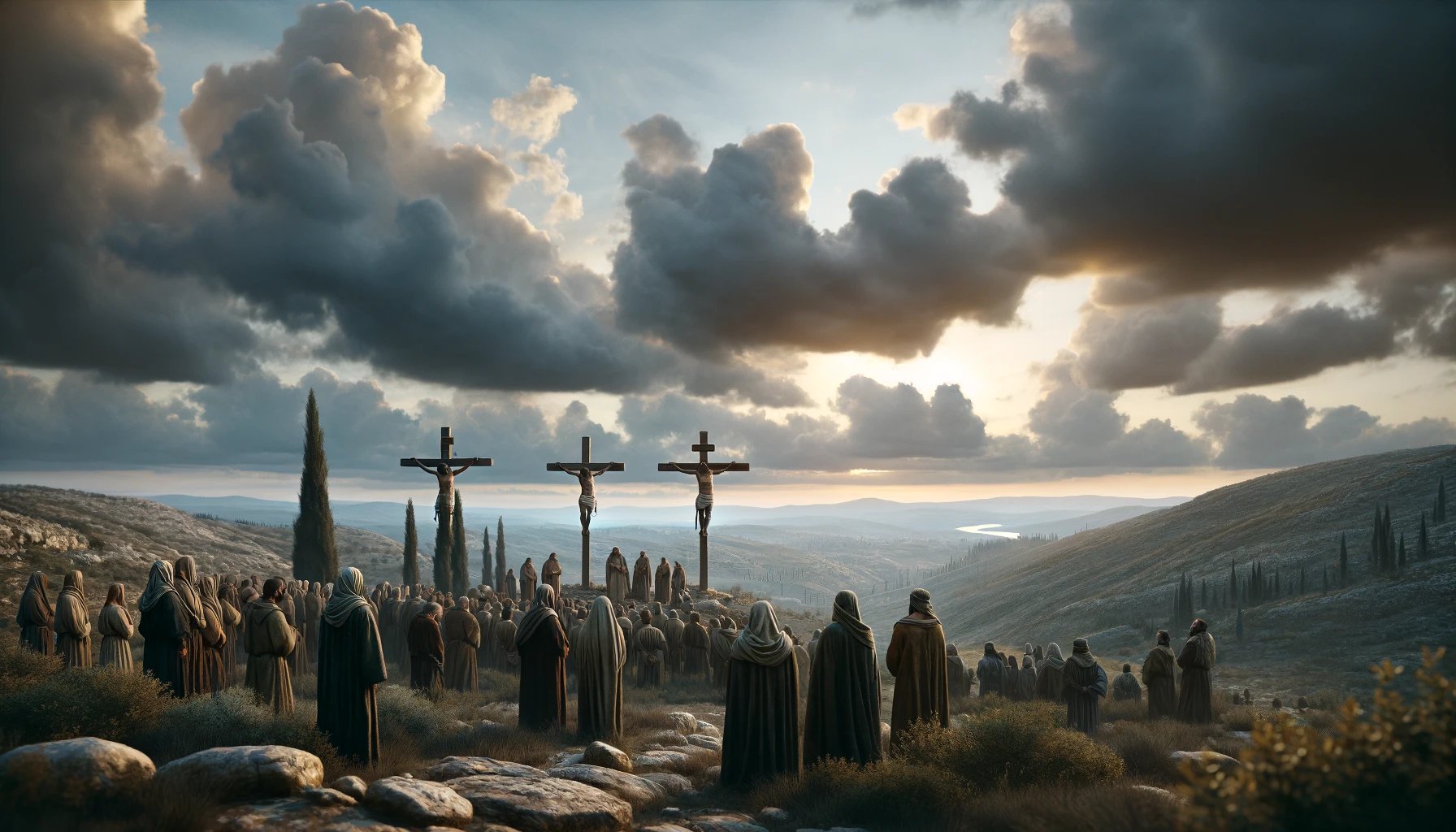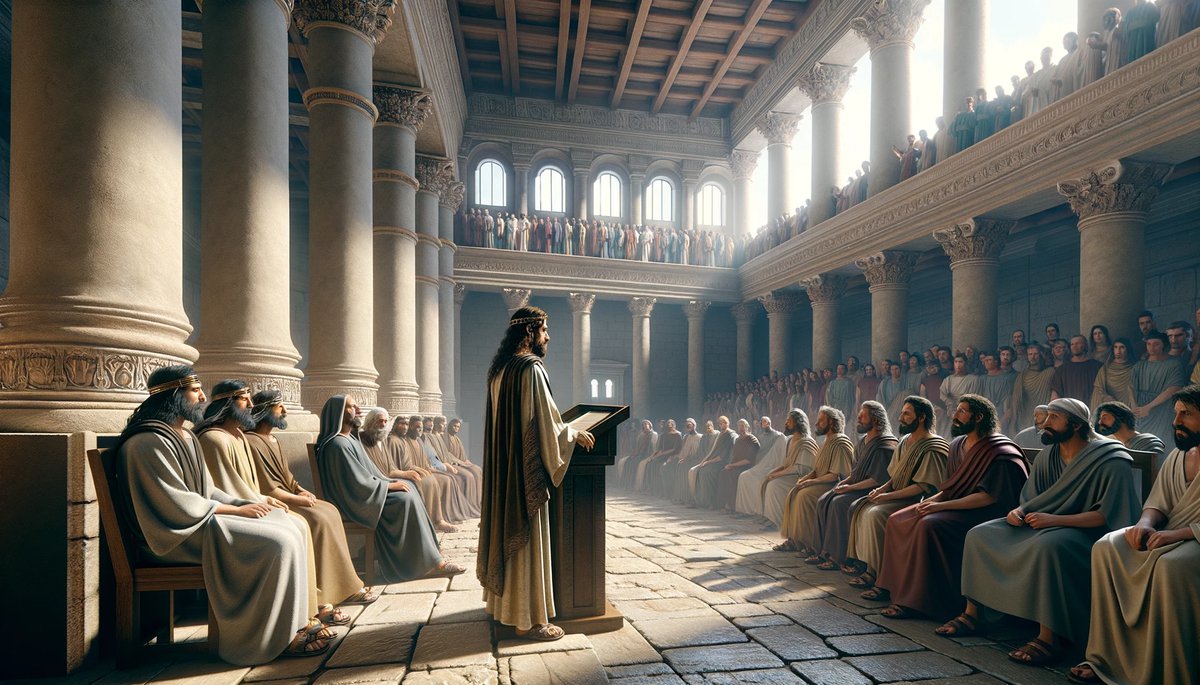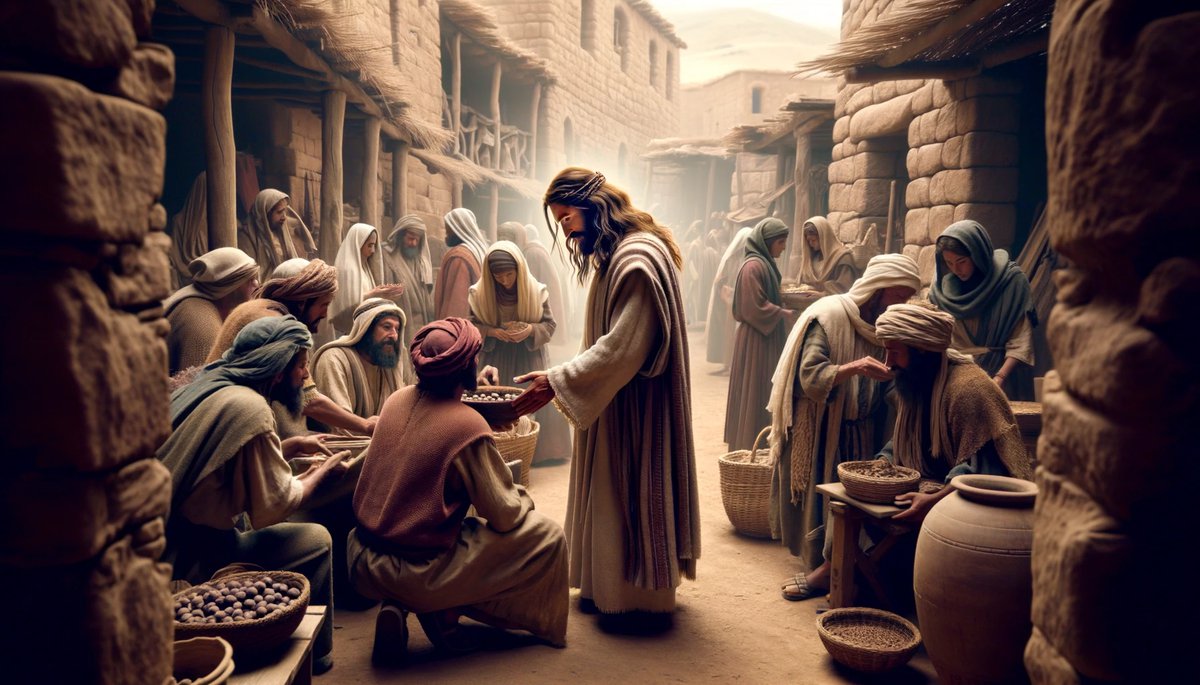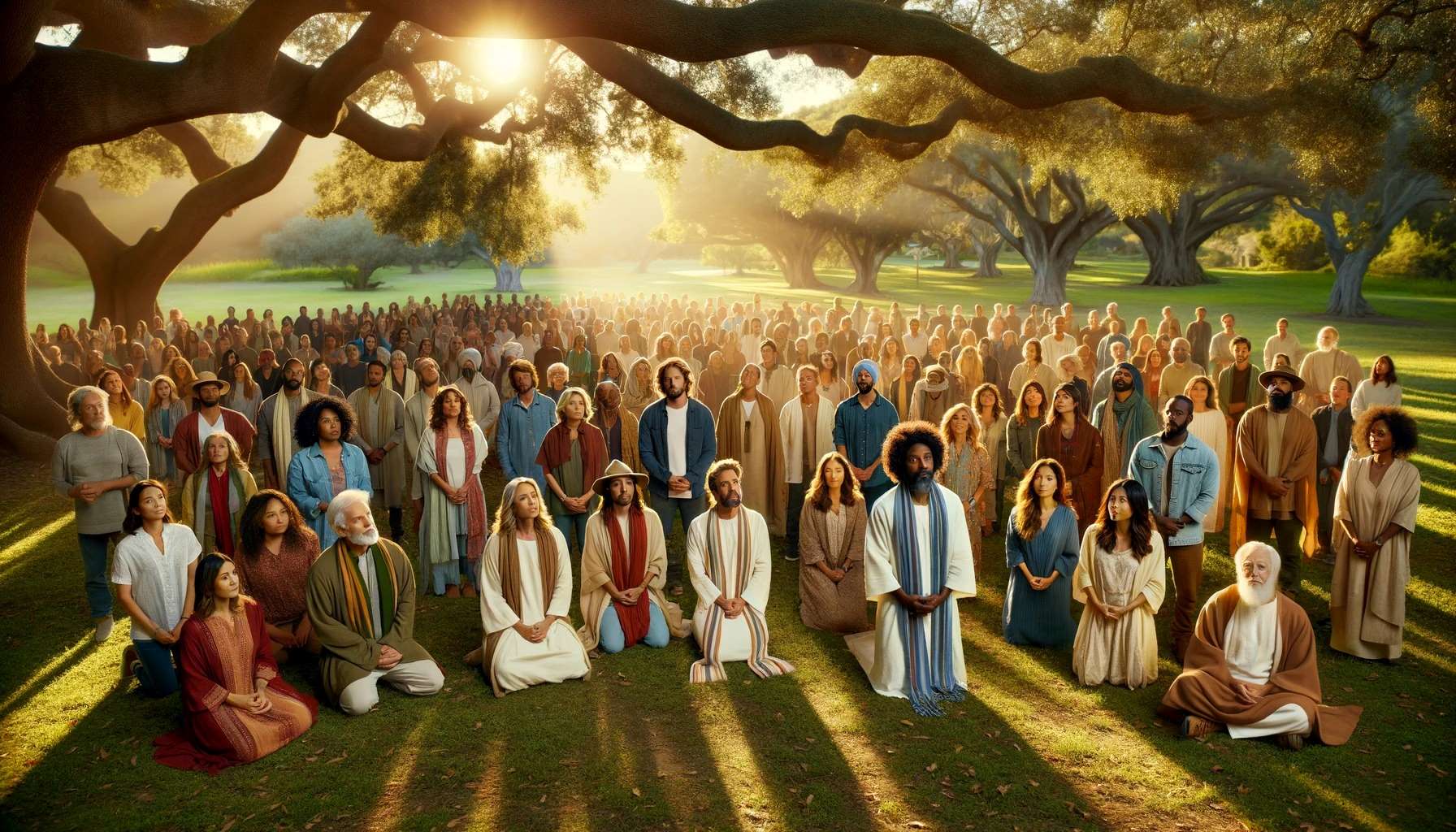Home>Christian Videos>Bible Stories>How Many Years Ago Was Jesus Christ Crucified
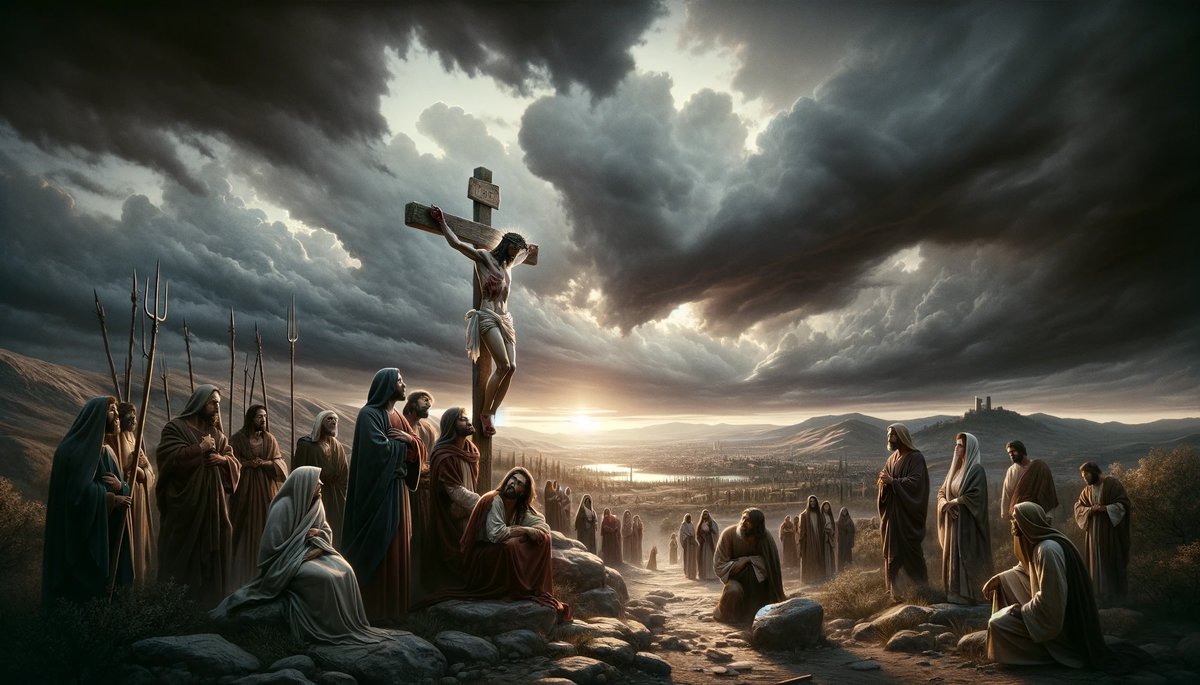

Bible Stories
How Many Years Ago Was Jesus Christ Crucified
Published: February 29, 2024
Peter Smith, Editorial Director at Christian.net, combines deep insights into faith, politics, and culture to lead content creation that resonates widely. Awarded for his contributions to religious discourse, he previously headed a major organization for religious communicators, enhancing dialogue on faith's societal impacts.
Discover the biblical account of Jesus Christ's crucifixion and the significance of this event in Christian history. Explore the timeline and historical context of this pivotal moment in the Bible.
(Many of the links in this article redirect to a specific reviewed product. Your purchase of these products through affiliate links helps to generate commission for Christian.net, at no extra cost. Learn more)
Table of Contents
The Historical Context of Jesus Christ's Crucifixion
The crucifixion of Jesus Christ took place around 30 AD, during the rule of the Roman Empire. At this time, the region of Judea, where Jesus lived and preached, was under Roman occupation. The Roman Empire had a strong presence in the area, and the local Jewish population was subject to Roman authority. The political and social climate of the time was tense, with religious and cultural differences often leading to conflict. It was within this historical context that the events leading to Jesus Christ's crucifixion unfolded.
The Roman Empire, known for its military might and authoritarian rule, had a significant impact on the daily lives of the people living in Judea. The Roman authorities imposed heavy taxes and strict laws, which often led to resentment and unrest among the local population. The Jewish people, who had a long history of religious and cultural traditions, found themselves at odds with the Roman occupiers. This tension between the Jewish population and the Roman authorities set the stage for the events that would ultimately lead to the crucifixion of Jesus Christ.
During this period, Jesus Christ emerged as a prominent religious figure, preaching a message of love, compassion, and spiritual salvation. His teachings and growing popularity posed a challenge to the existing religious and political power structures. This, in turn, drew the attention of both Jewish religious leaders and Roman authorities, who viewed Jesus as a potential threat to their authority. The clash between Jesus' teachings and the established religious and political order ultimately culminated in his arrest, trial, and crucifixion.
The historical context of Jesus Christ's crucifixion is crucial to understanding the significance of this event in the development of Christianity. It was a time of political upheaval, social tension, and religious conflict, all of which played a role in shaping the events that led to the crucifixion of Jesus Christ. This historical backdrop provides important insights into the broader implications of Jesus' life and death, and the enduring impact of his crucifixion on the development of Christian faith and theology.
Read more: How Many Years From Adam To Jesus Christ
The Events Leading Up to Jesus Christ's Crucifixion
-
Triumphant Entry into Jerusalem: Jesus' journey to Jerusalem, often referred to as the Triumphal Entry, marked the beginning of the events leading to his crucifixion. As he entered the city, crowds hailed him as the Messiah, spreading palm branches and cloaks on the road before him. This public display of support for Jesus caused concern among the religious leaders and Roman authorities, who perceived it as a challenge to their power.
-
The Last Supper and Betrayal: The Last Supper, a significant event in Christian tradition, was a meal shared by Jesus and his disciples. During this gathering, Jesus foretold his impending betrayal by one of his own disciples, Judas Iscariot. Later that night, Judas led the authorities to Jesus, identifying him with a kiss, which ultimately led to Jesus' arrest.
-
Trial and Crucifixion: Following his arrest, Jesus faced a series of trials before both Jewish religious leaders and Roman authorities. The religious leaders accused him of blasphemy, while the Roman governor, Pontius Pilate, questioned him about claims of kingship. Despite finding no fault in Jesus, Pilate succumbed to the pressure from the crowd and sentenced Jesus to be crucified. The crucifixion, a form of execution reserved for the most despised criminals, was a brutal and humiliating ordeal.
-
The Crucifixion and Death: Jesus was led to Golgotha, where he was crucified alongside two criminals. The crucifixion process involved nailing Jesus to a wooden cross, where he suffered immense physical and emotional agony. As he hung on the cross, he uttered the famous words, "Father, forgive them, for they know not what they do." After enduring hours of suffering, Jesus breathed his last breath, marking the culmination of the events leading to his crucifixion.
-
Burial and Resurrection: Following his death, Jesus' body was taken down from the cross and placed in a tomb. Three days later, according to Christian belief, Jesus rose from the dead, signifying the triumph over sin and death. This event, known as the Resurrection, holds profound significance in Christian theology and is celebrated as the cornerstone of the Christian faith.
The events leading up to Jesus Christ's crucifixion are deeply ingrained in Christian tradition and have been the subject of profound theological reflection and contemplation. The narrative of Jesus' arrest, trial, crucifixion, and resurrection forms the core of Christian belief, emphasizing the sacrificial nature of Jesus' death and the hope brought about by his resurrection.
The Significance of Jesus Christ's Crucifixion
The crucifixion of Jesus Christ holds immense significance in Christian theology and belief. It is viewed as a pivotal event that carries profound spiritual, theological, and symbolic meaning for Christians around the world. The significance of Jesus' crucifixion can be understood through several key aspects:
Atonement for Sin
The crucifixion of Jesus is central to the concept of atonement in Christian theology. According to Christian belief, Jesus willingly sacrificed himself on the cross as a means of atoning for the sins of humanity. His death is seen as a redemptive act that reconciles humanity with God, offering forgiveness and salvation to those who believe in him. The crucifixion is thus regarded as the ultimate expression of God's love and mercy towards humanity, providing a pathway to spiritual reconciliation and eternal life.
Victory Over Death and Sin
In Christian thought, the crucifixion of Jesus represents the triumph over sin and death. By willingly enduring the suffering and humiliation of crucifixion, Jesus is believed to have conquered the powers of sin and death, offering the promise of eternal life to those who follow him. His resurrection from the dead following the crucifixion is seen as a definitive victory over the forces of darkness and a demonstration of God's power to overcome the limitations of human existence.
Read more: Why Was Jesus Christ Crucified
Exemplification of Sacrificial Love
The crucifixion of Jesus serves as a powerful example of sacrificial love and selflessness. Christians view Jesus' willingness to endure the agony of crucifixion as a demonstration of his boundless love for humanity. His selfless act of laying down his life for others is considered a model of love and compassion, inspiring believers to emulate his example in their own lives. The crucifixion thus becomes a symbol of the transformative power of love and the call to selfless service and compassion towards others.
Foundation of Christian Faith
The crucifixion of Jesus Christ forms the foundation of Christian faith and belief. It is central to the Christian narrative of salvation and forms the core of Christian doctrine. The significance of Jesus' crucifixion is reflected in the central place it holds in Christian liturgy, theology, and spiritual reflection. The symbol of the cross, representing the crucifixion, is a ubiquitous and potent emblem of Christian identity, serving as a constant reminder of the profound significance of Jesus' sacrifice.
Fulfillment of Prophecy
For many Christians, the crucifixion of Jesus is seen as the fulfillment of Old Testament prophecies concerning the coming of a Messiah who would suffer and die for the sins of the world. The events leading up to and including the crucifixion are often interpreted in light of these prophecies, reinforcing the belief in Jesus as the fulfillment of divine promises and the culmination of God's redemptive plan for humanity.
In summary, the significance of Jesus Christ's crucifixion is multifaceted, encompassing themes of atonement, victory, love, faith, and fulfillment of prophecy. It stands as a central tenet of Christian belief, shaping the spiritual identity and worldview of millions of believers worldwide. The crucifixion of Jesus continues to be a source of profound contemplation, inspiration, and hope for Christians, underscoring the enduring impact of this pivotal event in the Christian faith.
The Impact of Jesus Christ's Crucifixion on Christianity
The crucifixion of Jesus Christ has had a profound and enduring impact on the development and shaping of Christianity as a global faith tradition. The significance of Jesus' crucifixion reverberates through the beliefs, practices, and identity of Christian communities worldwide, influencing both theological thought and the lived experiences of believers. The impact of Jesus' crucifixion on Christianity can be observed in several key areas:
Foundation of Christian Faith
The crucifixion of Jesus Christ serves as the cornerstone of Christian faith, providing the central narrative of salvation and redemption. The belief in Jesus' sacrificial death on the cross and his subsequent resurrection forms the bedrock of Christian theology, shaping the understanding of sin, atonement, and the promise of eternal life. The crucifixion narrative is woven into the fabric of Christian liturgy, prayer, and sacramental life, underscoring its foundational role in shaping the spiritual identity of believers.
Symbolism and Iconography
The image of the cross, symbolizing the crucifixion of Jesus, holds profound symbolic and visual significance in Christianity. It serves as a potent emblem of faith, representing the central tenets of Christian belief in the sacrificial love of Jesus and the hope of salvation. The crucifix, depicting the body of Jesus on the cross, is a ubiquitous symbol in Christian art, architecture, and religious artifacts, serving as a constant reminder of the transformative power of Jesus' crucifixion and the enduring impact of his sacrifice.
Theological Reflection and Contemplation
The crucifixion of Jesus Christ has been a subject of deep theological reflection and contemplation within Christian tradition. It has prompted profound inquiries into the nature of God, the problem of human suffering, and the mystery of divine love. The theological significance of Jesus' crucifixion has given rise to diverse interpretations and reflections, enriching the intellectual and spiritual heritage of Christianity and inspiring believers to engage in profound contemplation of the meaning and implications of Jesus' sacrificial death.
Formation of Christian Identity
The crucifixion of Jesus Christ has played a pivotal role in shaping the collective identity of Christian communities. It has fostered a sense of solidarity and shared belief among believers, uniting them in their acknowledgment of Jesus' redemptive sacrifice. The narrative of Jesus' crucifixion has been instrumental in shaping the ethical and moral framework of Christian ethics, emphasizing themes of love, forgiveness, and self-sacrifice as central to the Christian way of life. The impact of Jesus' crucifixion on Christian identity is evident in the enduring commitment of believers to embody the values and teachings exemplified by Jesus' life and death.
Read more: What Time Was Jesus Christ Crucified?
Global Spread and Influence
The impact of Jesus' crucifixion extends beyond the boundaries of any single culture or geographical region, contributing to the global spread and influence of Christianity. The message of Jesus' crucifixion and resurrection has transcended linguistic, cultural, and ethnic barriers, resonating with diverse communities and shaping the religious landscape of numerous societies. The enduring impact of Jesus' crucifixion has been instrumental in the growth and expansion of Christianity as a global faith, influencing the beliefs and practices of millions of adherents across continents and centuries.
In summary, the impact of Jesus Christ's crucifixion on Christianity is far-reaching and multifaceted, permeating the theological, symbolic, communal, and global dimensions of the Christian faith. The enduring significance of Jesus' crucifixion continues to shape the beliefs, practices, and lived experiences of Christian communities, serving as a testament to the enduring impact of this pivotal event in the history of Christianity.
